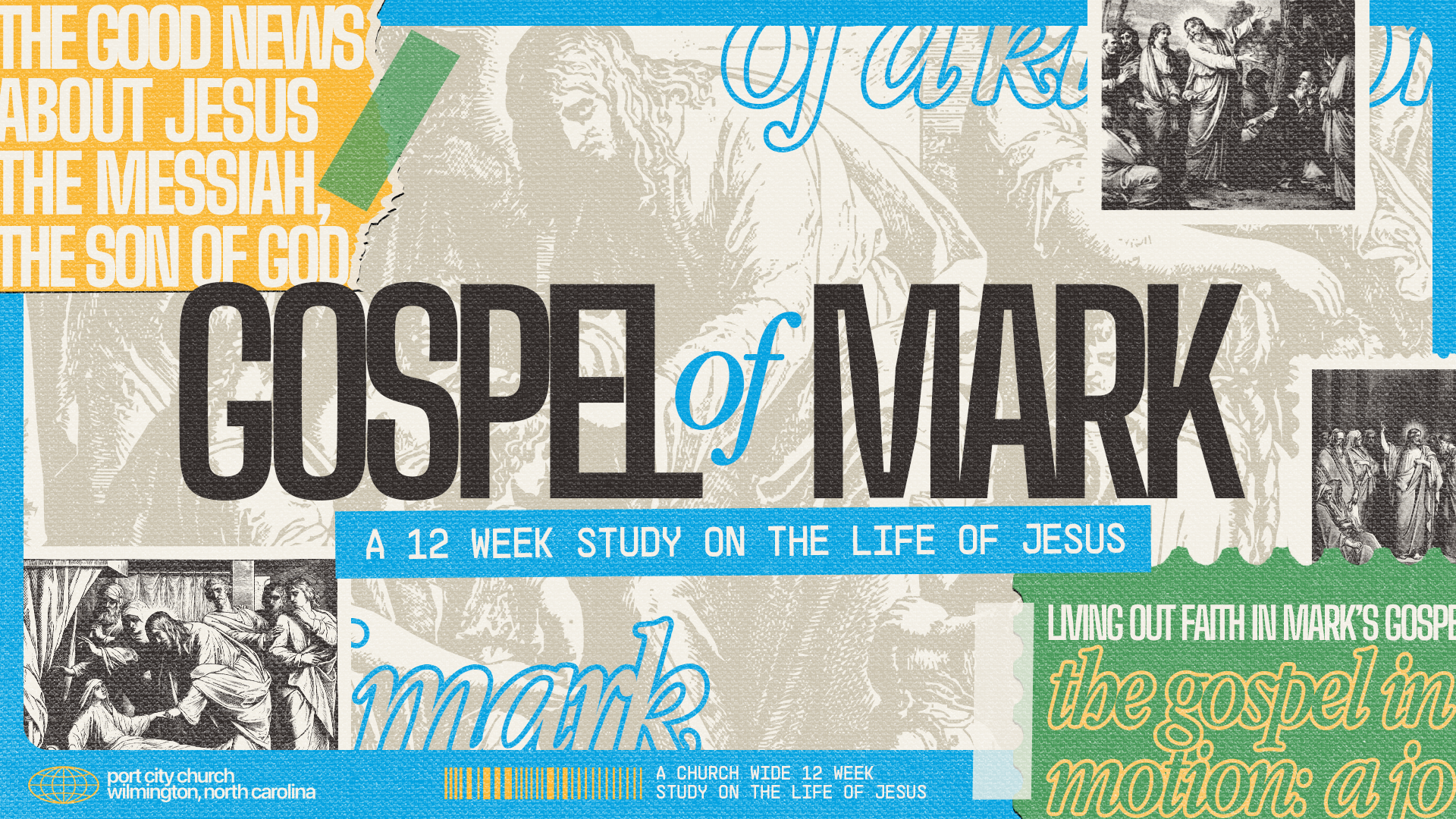Trial and Mockery
READ
Today’s passage recounts the intense final hours before Jesus’ crucifixion, as He endures an unjust trial before the Sanhedrin, Peter’s heartbreaking denial, and Pilate’s political maneuvering. Amid betrayal, mockery, and brutality, Jesus remains silent before His accusers, fully embracing the path of suffering to fulfill His mission.
Let’s take a moment to read Mark 14:53-15:20.
“Again the high priest asked him, ‘Are you the Christ, the Son of the Blessed?’ And Jesus said, ‘I am, and you will see the Son of Man seated at the right hand of Power, and coming with the clouds of heaven.’” Mark 14:61-62
“So Pilate, wishing to satisfy the crowd, released for them Barabbas, and having scourged Jesus, he delivered him to be crucified.” Mark 15:15
“And they clothed him in a purple cloak, and twisting together a crown of thorns, they put it on him. And they began to salute him, ‘Hail, King of the Jews!’” Mark 15:17-18
REFLECT
In the trials and mockery of Jesus, we see a profound revelation of both human nature and divine character. The religious leaders who should have recognized their Messiah instead condemned him. Pilate, who discerns Jesus's innocence, still surrenders him to the crowd's demands. Peter, who vowed undying loyalty, denies even knowing Jesus. The soldiers, confronted with true majesty, respond with cruel mockery. These reactions expose our human tendency to reject the truth when it challenges our power, compromises our integrity for approval, and abandons our commitments when they become costly.
Yet Jesus's response to this treatment reveals something far more profound. When falsely accused, he largely remains silent. When mocked as a king, he doesn't defend his true royal identity. When facing unjust condemnation, he doesn't call down angels to rescue him. His restraint isn't weakness but strength born of purpose. Jesus understood that his path to glory led through suffering, not around it.
How often do we, like Peter, let fear overwhelm our faith? We may not verbally deny Jesus, but we deny him whenever we choose comfort over conviction, popularity over principle, or self-protection over sacrificial love. Peter's tears remind us that recognition of our failure is the first step toward restoration. Jesus already knew Peter would deny him—and still chose him, still loved him, still had plans for him. The same is true for us.
The religious leaders' blindness cautions us about the danger of institutional religion that becomes so focused on protecting its traditions and authority that it fails to recognize God's work. They studied Scripture diligently but missed the living Word standing before them. Their story challenges us to examine whether our own religious certainties might sometimes blind us to God's surprising movements.
Pilate's failure reveals the bankruptcy of moral compromise. He recognized Jesus's innocence but lacked the courage to act on this knowledge. How often do we, like Pilate, know what's right but surrender to what's expedient? His question—"What is truth?"—hangs in the air as a challenge to our own commitment to truth when it becomes uncomfortable or unpopular.
The soldiers' mockery—dressing Jesus in purple, crowning him with thorns, kneeling in false homage—becomes a powerful picture of unintended worship. They meant to ridicule, yet they accidentally acknowledged reality: Jesus is indeed the King, though not the kind they expected. Their story reminds us that even those who mock Jesus can't help but testify to his true identity.
Through all these broken human responses, Jesus remains steadfast. His dignity in suffering, his restraint in the face of false accusation, his willingness to endure mockery—all reveal a different kind of strength than the world recognizes. He demonstrates that true power often looks like weakness to those who don't understand God's ways.
As we reflect on this passage, we're invited to examine our own responses to Jesus. Do we recognize him for who he truly is, or do we reshape him to fit our expectations? Do we stand with him when it's costly, or do we, like Peter, distance ourselves when association with him threatens our comfort or reputation? Do we, like Pilate, know what's right but lack the courage to act on it?
The good news is that Jesus endured all this rejection and mockery for us—not just for humanity in general, but for you and me specifically. His crown of thorns purchased our crown of life. His silence before accusers gives us a voice before God. His unjust trials secure our just standing before the Father. As we approach Good Friday, may we recognize both the cost of our salvation and the One who willingly paid it.
RESPOND
Take a moment to process what God might be leading you to do in light of what you read.
When have you, like Peter, failed to stand with Jesus when it was difficult? How does his restoration after failure speak to your own journey?
Where in your life might you be like Pilate—knowing what's right but compromising for approval or convenience?
REST
Take a moment to rest in God’s presence and consider one thing you can take away from your time reading, then close your devotional experience by praying:
Jesus, your strength in suffering reveals true kingship. When I face mockery or injustice, help me respond with Your dignity rather than defensiveness. Transform my failures into opportunities for deeper grace, and give me courage to stand for truth even when I stand alone. Amen.

